Mastering for Rock Music
Quick Answer
Mastering for Rock music is the process of preparing a rock song or project for distribution, all while keeping the unique sonic characteristics of the rock genre in mind. Rock has many sub-genres that will determine the type of processing used, as well as the extent to which transients are preserved.
Mastering for Rock Music in Detail

Rock is a very diverse and multifaceted genre.
Rock music can no doubt take many forms. Its multiple genres have led to new and innovative forms of audio engineering, as well as necessitated new ways of recording and producing music.
To hear the full scope of rock music and to understand everything the term ‘rock’ means, you would need to listen to decades upon decades of records. Rock music is needless to say, a complex web of sounds, styles, ideas, and forms of music production.

Rock music has been around for decades, nearing a century. Its popularity has resulted in new ideas, production styles, and recording technology.
If you were to listen to the small, controlled tones of Cake, and compare it to the massive stadium rock reverberations of U2 - or hear the stripped-down recordings of Chuck Berry, and compare it to the sonically decadent layerings of Radiohead, you’d start to come to terms with rock music’s scope.
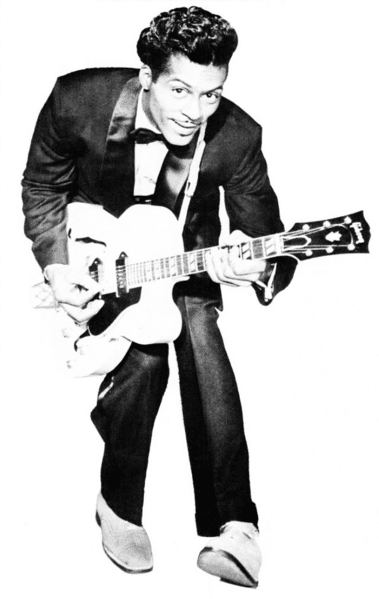
Chuck Berry was the driving force behind rock's inception.
All this to say, that although multiple genres fall under the moniker of rock, the sounds created by these genres and their respective recordings are unique and individualistic.
When it comes to mastering rock music, these unique characteristics need to be understood, respected, and acted on in a way that produces the best sounding record possible.
Although the sub-genres of rock vary wildly in their tonality, understanding the fundamentals of the genre, as well as the processing that best accommodates it, is key to mastering for it.
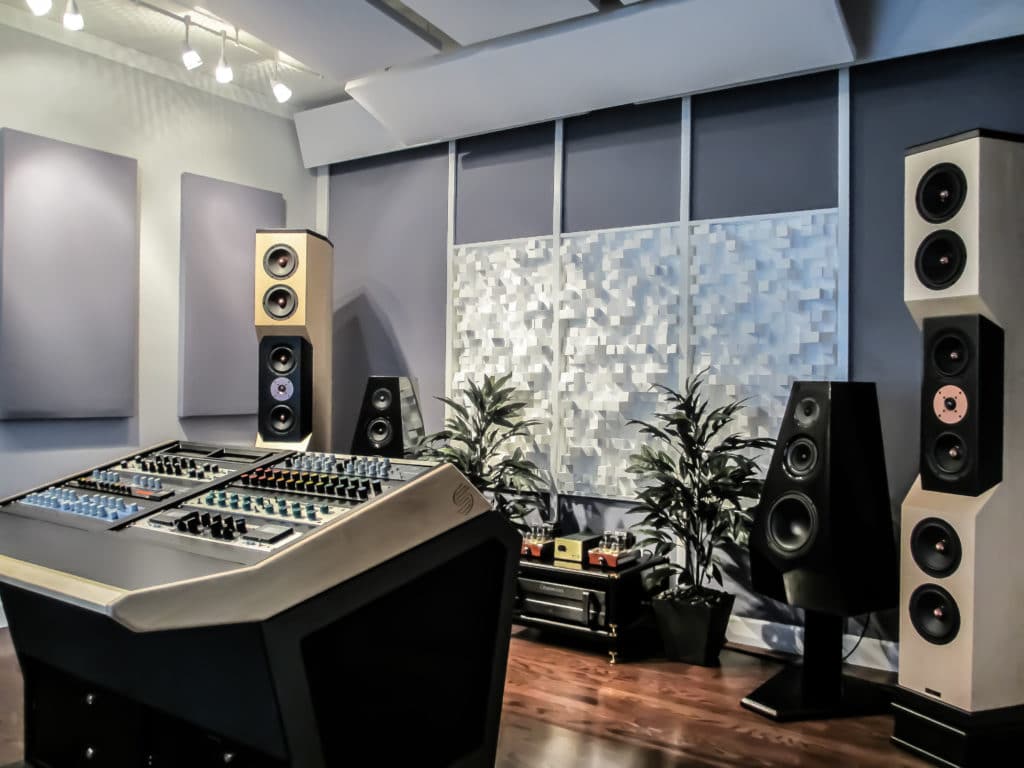
Mastering for rock music requires knowledge about genres and the production styles that identify them.
With that said, let's look into the different ways rock music can be mastered, as well as the aspects that define both the sub-genres of rock and the mastering processes tied to them.
But first, if you’re looking to have your music mastered, and want to hear how your song would sound prior to actually committing to a studio or engineer, send us your mix here: https://www.sageaudio.com/register.php
We’ll master it for you using only analog equipment, and send you a free mastered sample.
The Transients
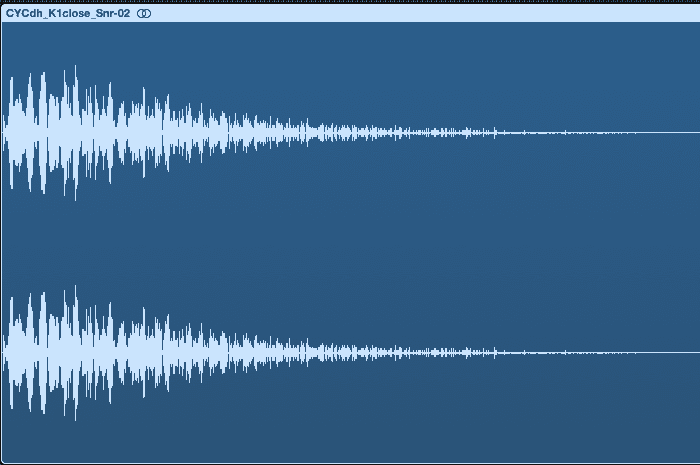
The waveform of an isolated snare drum.
This may not be the first place you’d think to start when discussing mastering for rock, but the need for transients or lack thereof defines some of the rock sub-genres we love, and the mastering that makes them possible.
Transients are always an important part of music, regardless of genre. With that said, they can become increasingly important in some genres due to a myriad of reasons.
Let’s break this down by the rock sub-genres Metal, Indie Rock, and Pop Rock. Although this is certainly an oversimplification of rock genres, it will allow us to discuss the important parts of rock processing in a mastering sense.
Just for clarification - a transient is a high amplitude, short-duration waveform. It can also be considered the attack in the Attack, Decay, Sustain and Release elements associated with the overall timbre of a sound.
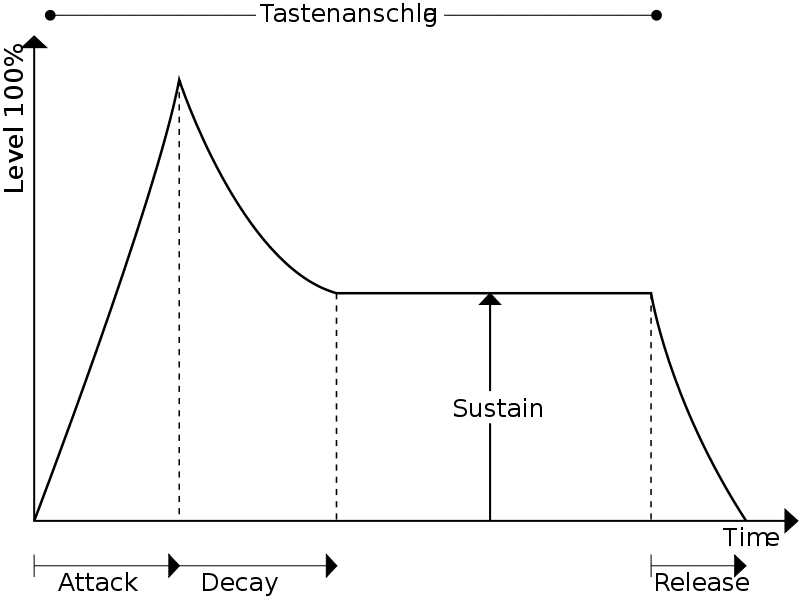
Attack, decay, sustain and release are the 4 elements that make up an instrument's timbre. Attack and decay are primarily the transient of any instrument.
Transients in a rock production are often the snare drum, kick drum, high hat, the initial strike of a guitar or piano, or any aspect of a vocal or instrument that is loud and short.
Mastering Metal

Metal is characterized by loud, fast instrumentation, and distortion based effects processing.
Typically, if a track has more instrumentation, louder instrumentation, and more distorted instrumentation, preserving transients becomes incredibly important for maintaining the intelligibility of the song.
In other words, when a track is louder than most, if the instrumentation blends too much, the entire song will sound like one big garbled mess.
That’s why Metal and other forms of hardcore rock typically value transients above all else.
So what does this mean for mastering?
In brief, it means longer attack and shorter release times when compressing, little to no added distortion or harmonic generation, and if possible, no brick wall limiting.
Now, I know that a fair amount of metal uses brick wall limiting. No one needs to be reminded of Metallica’s Death Magnetic - a compressed mess of a record, that mistook loudness for quality.

This is a disturbingly compressed waveform from Metallica's 'Death Magnetic.'
But this truly only supports the idea that brick wall limiting is a mistake if transient retention is considered a priority.
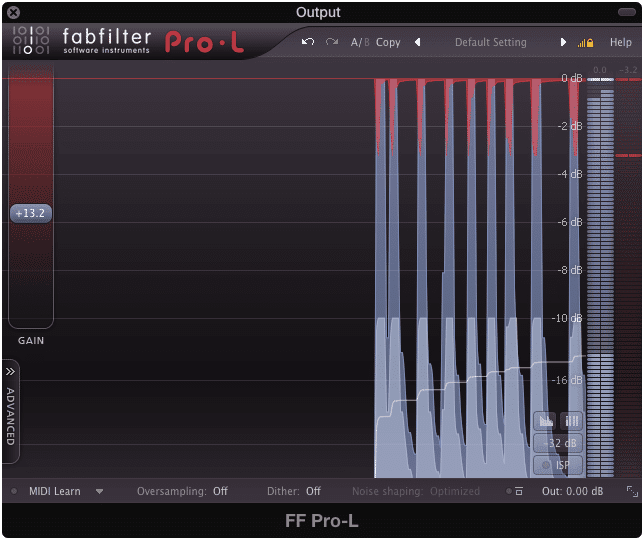
Brick wall limiting undeniably truncates transients.
When transients are truncated or cut short of reaching their full amplitude, there is no doubt that an aspect of them is lost. When you couple this with increasing the volume of the surrounding instrumentation, until it’s just as loud as the transients, you lose the dynamics that make a metal song move and breathe. It will no doubt become loud and chaotic.
What about distortion? Why not include distortion when mastering metal music?
Although this may not be the case with every metal track, the odds are that the instrumentation has already been distorted a fair amount by the guitarists’ and bassists’ amplification and effects.
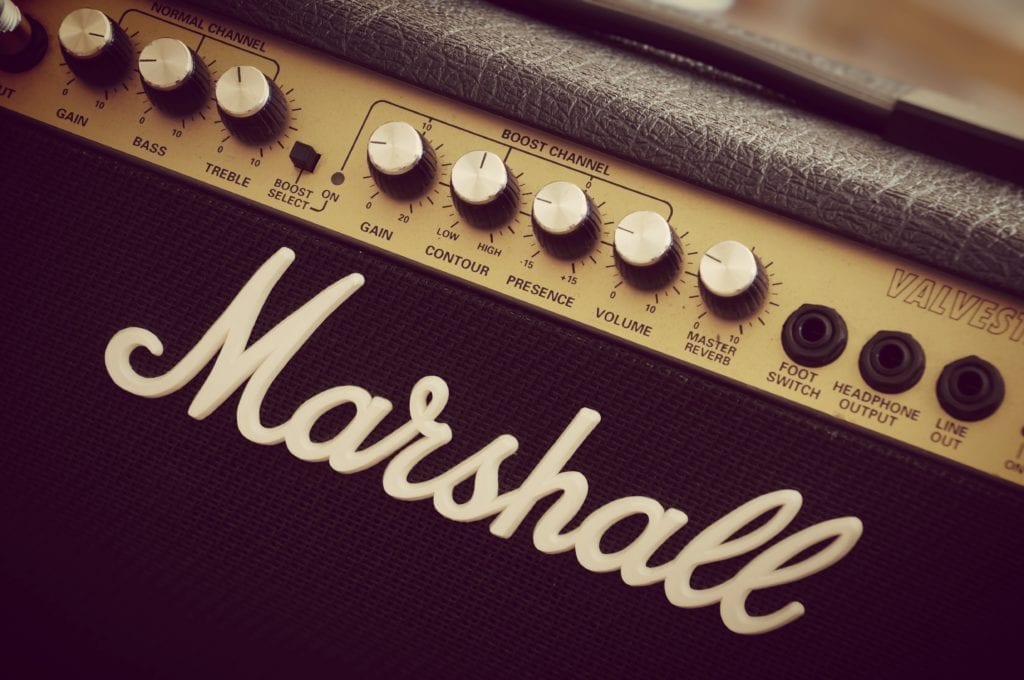
Unlike most genres, a fair amount of distortion is inherent to Metal.
Distortion is definitely desired in this genre, but too much and masking can really begin to take a toll.
Typically harmonic generation sounds pleasant because it creates a full sound. This full sound is the result of new harmonics filling in the gaps or frequencies that other instrumentation isn’t occupying.
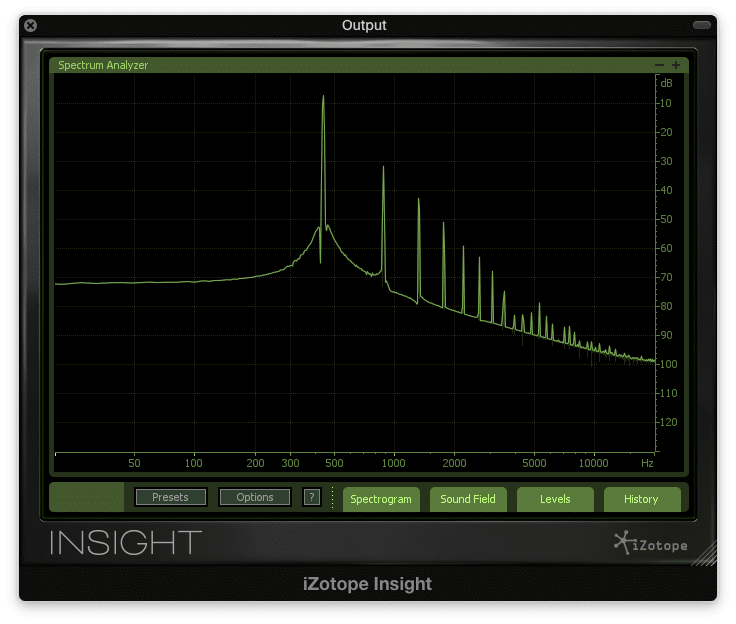
Tube distortion resulting from saturation generates even-order harmonics.
If the vast majority of the instrumentation is already distorted, and these harmonics are already present, adding a significant amount of these harmonics is overkill. This is made worse when these added harmonics begin masking or nullifying the phase of other harmonics generated by the recorded distortion. When this happens, there goes the clarity necessary for a transparent transient response.
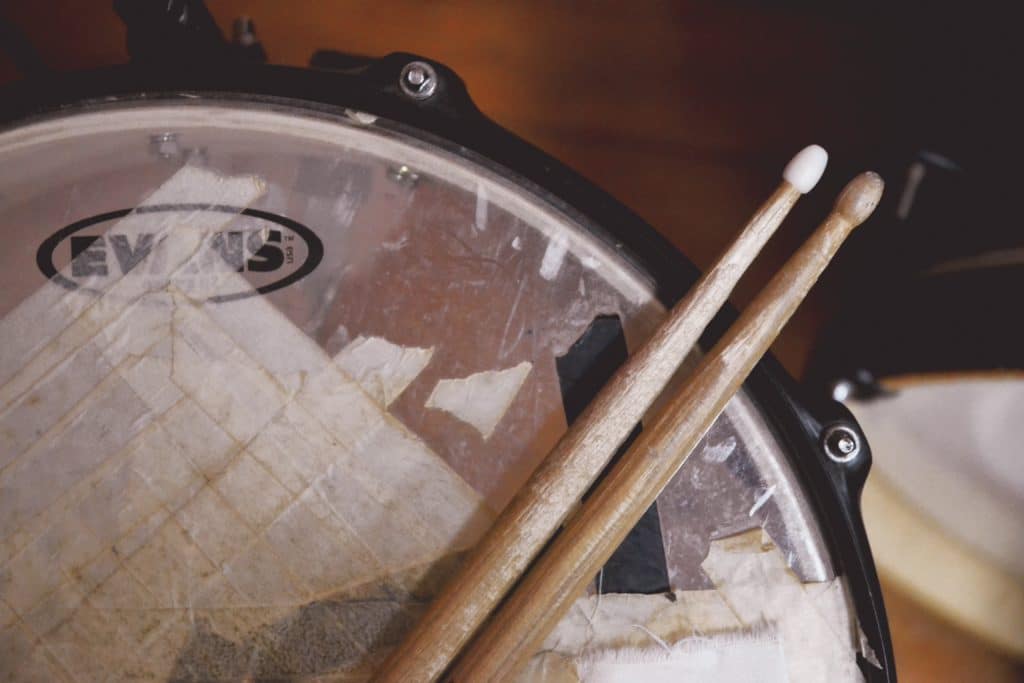
When excessive distortion occurs, transients will become lost in masking or phase cancellation.
So when it comes to metal, sometimes less is more. Keeping things transparent, while controlling dynamics enough to avoid brick wall limiting is crucial to making a good master.
Processing that makes the drums dynamic, keeps instrumentation balanced, limits the total harmonic distortion, and avoids transient truncation is a great foundation for making a great metal mix sound even better during mastering.
If you’re curious how to shape transients using a compressor, check out our video “How to Use A Compressor Like an EQ”****to see the link between attack and release times, and timbre.
Mastering Indie Rock

Indie rock typically has less instrumentation.
On the opposite side of the transient spectrum, you have indie-rock. Unlike metal, Indie rock’s instrumentation is often sparse and lacks the distortion associated with harder rock.
Furthermore, although transients are of course needed, their role in the music’s timbre is valued slightly less overall and can be treated accordingly during mastering.

Indie's laissez-faire relationship with transients is made evident by the genre's love for tape saturation, and high-end attenuation.
This isn’t to say that their role can be disregarded during a mastering session, but other sonic characteristics are valued more and should be implemented.
In indie rock, cohesiveness amongst instrumentation and vocals is highly valued. When you hear the term “glue” in mastering, this is typically what it is associated with.
Essentially, this sound is created using quick attack and slow release times when compressing, as well as harmonic distortion and saturation.
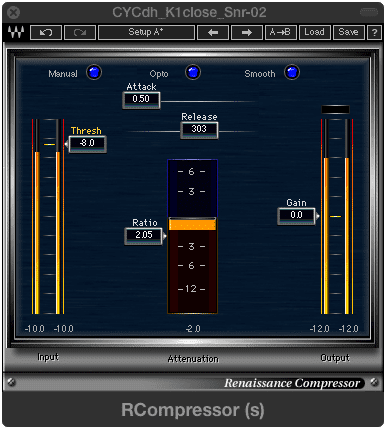
A short attack and long release time compresses the attack and decay of the ADSR envelope.
The goal of mastering most indie-rock projects is to level off any harshness, to create a smooth, glued sound, and to fill in the gaps with gentle distortion and harmonic generation. This means that transients can be attenuated or compressed, instruments or vocals can be distorted, and saturation can be used to both create harmonics, as well as introduce soft-knee compression.
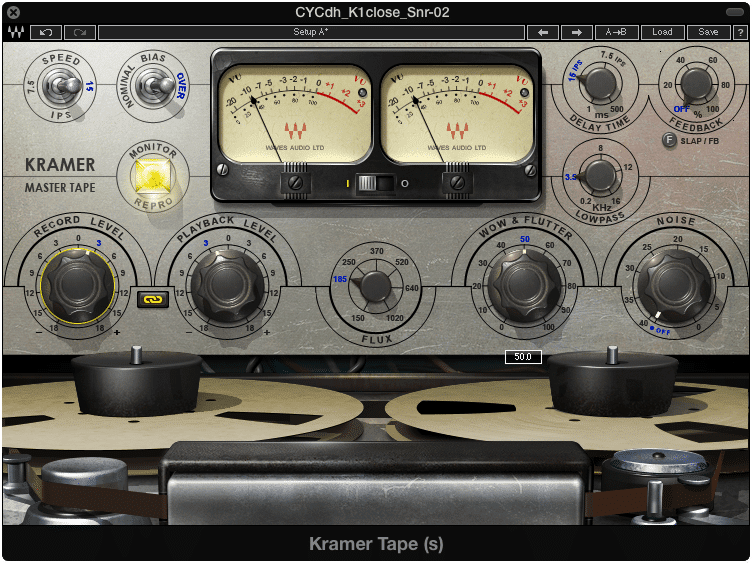
Tape saturation causes soft-knee compression and harmonic generation. When paired, these two effects cause a glued sound amongst the instruments they're affecting.
Furthermore, because most indie-rock projects value tone over clarity, some of the high frequencies can be attenuated slightly, to result in a warm, perhaps classic feel.
This attenuation of the high end as well as the degrees to which distortion is introduced truly varies amongst the sub-genres of indie rock, as more lo-fi projects seek to create unconventional frequency responses.
If you’re in an indie rock group, and you’re curious about everything you need to do before distribution, check out our blog post on this topic: "Everything You Need to Know About Releasing a Song."
Mastering Pop Rock

Pop-rock typically includes synthesizers, which occupy a fair amount of the frequency response.
Pop Rock can be considered almost a blend of the two aforementioned genres - not in its actual sound, but in how the transients are processed during mastering.
In pop-rock, both transient response, and a glued sound are valued. This presents what seems like a difficulty at first.
The more you glue a mix together the fewer transients it has, the less you glue a mix together the more transients it has. The two sonic characteristics seem to contradict and counteract one another.
Fortunately, the remedy for this is setting a medium attack and release time when compressing.
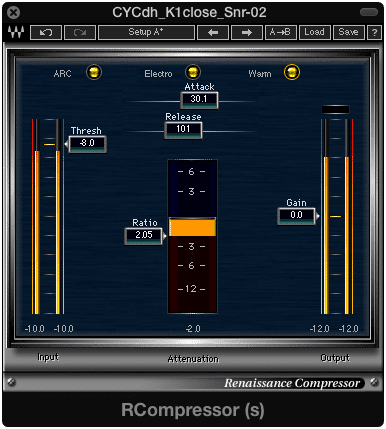
A moderate attack and release time helps both glue instrumentation and preserve the transient response.
Following what was stated for the two previous rock sub-genres, find a good balance of the two types of processing to get a good pop-rock master.
That means use distortion in moderation. Harmonic generation is helpful, but don’t go overboard, as the pop-rock instrumentation is typically busier than indie rock.
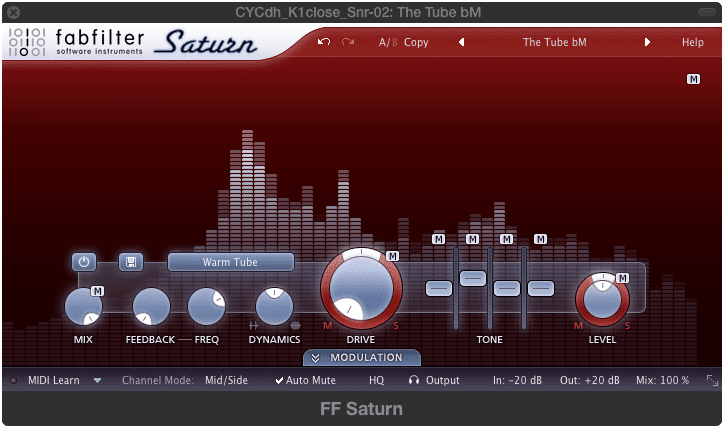
Subtle tube saturation works well on Pop Rock mixes.
Don’t compress in a way that attenuates the transients fully. This means setting an attack and release time that will eliminate some detail but will also allow certain instrumentation like the snare and the kick to cut through without much change in timbre.
Pop-rock can also have a more stylized sound with its high end attenuated, or it can be more polished and detailed in the high end. It certainly depends on the project and the desired end result.
So in short, use moderate compression and distortion, all while keeping a relatively balanced frequency response.
For some techniques on how to mix pop-rock music, check out our other blogs here: https://www.sageaudio.com/blog/mixing
Now that we’ve covered how transients affect how a rock mastering session is approached, let’s look into some other aspects that play a role.
Loudness
10 years ago, this post would have detailed how loud you should make the masters for each subgenre of rock. You would have seen metrics like “0VU using a -8VU scale”, or “-10 LUFS.” I’m sure there would have been compelling arguments why a song should be made so loud (whether these arguments would have held up is another story).
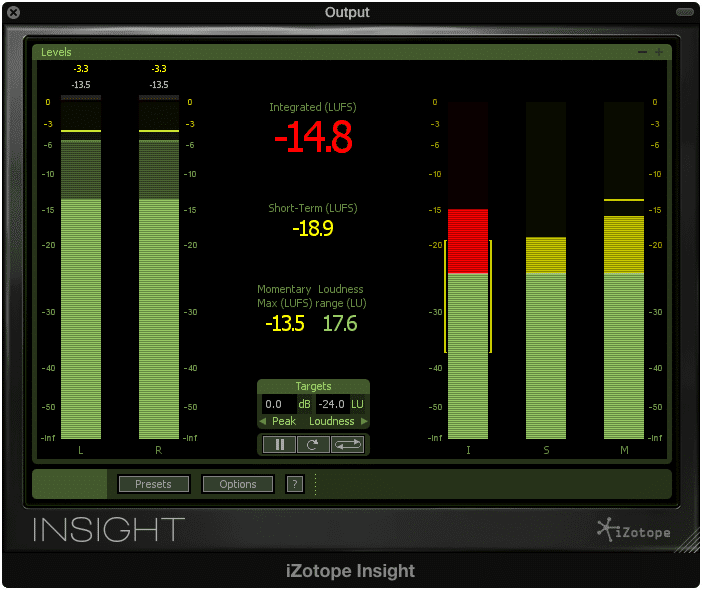
Songs no longer need to be mastering incredibly loud.
Fortunately for music and music lovers alike, these days are done. If our frustration with squashed dynamics was the catalyst for some change in mastering, then streaming platform’s normalization process is the final nail in the coffin for the Loudness Wars.
It seems almost oxymoronic but yes, normalization is restoring dynamics in music.
How so?
Popular streaming services such as Spotify and Apple Music are changing how songs need to be mastered, regardless of genre.
For example, Spotify automatically normalizes all audio during playback to -14LUFS. This means that any master made louder than -14LUFS will be turned down. Furthermore, that master will be attenuated the number of LUFS it goes over the -14LUFS normalization benchmark.

Spotify normalizes your music to -14 dB LUFS
Of course, listeners have the ability to turn this off or alter their normalization settings, but many don’t. The option to do so is hidden deep within the settings of the user’s account.
This means that records don’t need to be mastered loudly to “compete” with other records and that if they are mastered louder, there is no benefit. In fact, if these records are mastered louder and put onto Spotify or Apple Music, odds are they’ll sound significantly worse than other records.

Mastering too loud into normalization will result in a heavily compressed sound.
Of course, if mastering for a different medium such as cassette or vinyl, different specifications will be followed - regardless, the era of exhaustingly loud recordings is coming to an end.
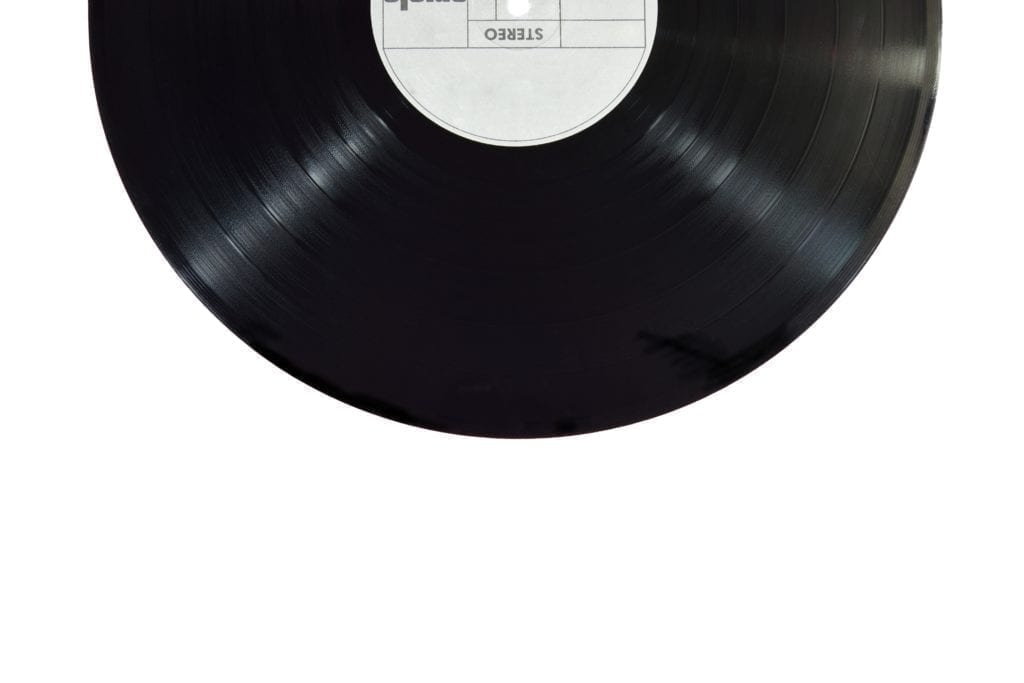
Mastering rock music for vinyl is a very different process than mastering for digital release.
If you want more information on how Spotify normalizes music, check out our post here: https://www.sageaudio.com/blog/pre-mastering-tips/how-loud-should-my-mix-be.php
If you’re curious about how loudness relates to other mediums such as vinyl and cassette, here are two blogs on that topic!
What is Mastering for Cassette?
Analog or Digital Mastering for Rock
It’s fair to ask if there is a specific type of mastering that works better for rock music. Analog certainly has certain characteristics that digital doesn’t and vice versa. But to make a definitive statement that one type of processing is better than the other for the genre, might be an oversimplification.
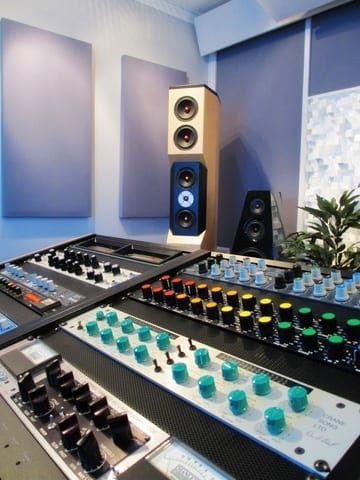
Analog mastering is a versatile form of mastering.
Digital mastering and processing are typically associated with a clean, transparent signal. This is of course if you don’t include analog emulators or other forms of distortion.
Digital processing could be useful for metal mastering, due to this cleanness. If you needed incredibly fast release times when compressing and wanted absolutely no coloration to the sound, then digital mastering would be the best bet to accomplish this.
With that said, a clean signal with transient emphasizing processing can and does occur during analog mastering as well. It truly depends on the equipment used, and the engineer.
If you’d like to learn more about digital mastering, check out our blog here: https://www.sageaudio.com/blog/mastering/what-is-digital-mastering.php
Analog mastering may be better for both indie-rock and pop-rock. If you’re looking to create a lo-fi sound, or add a significant amount of character to your master, analog equipment offers more opportunities to create that sound.
Even if you’re looking for gentle saturation and mild coloration to your sound, like in a pop-rock mix or master, analog equipment can provide these in moderation.
Of course, digital mastering can emulate analog equipment to a certain extent and is still a good option for mastering both indie-rock and pop-rock.
If you’d like to learn more about analog mastering read here: https://www.sageaudio.com/blog/mastering/what-is-analog-mastering.php
If you’re curious about stem mastering, a process that can be either analog or digital-based, check out our article on the topic: https://www.sageaudio.com/blog/mastering/what-is-stem-mastering.php
Conclusion:
Mastering for rock, or any genre, is a complex process. It takes an understanding of what people want to hear, and what they expect to hear from a particular style of music.

Although enjoying music this much is probably dangerous, creating a good master is all about knowing what the audience wants and expects to hear.
It also necessitates understanding some of the fundamental aspects of the genre, as well as knowing that one approach does not work for every song.
Transients, and the desire to maintain them, or the lack of that, really determine the type of processing that occurs.
For metal and most hard rock, transients are prioritized over further distortion and compression. This results in cleaner processing, with a slow attack, quick-release compression method.
For indie rock, transients are less important than saturation, or the tone that distortion and soft-knee compression creates. Overall, the tone or timbre is more important than the clarity, or a completely accurate representation of the sound source. This makes it a perfect genre for slow release compression, harmonic generation, and slight attenuation of the high end.
And for pop-rock, a blend between the two previously mentioned processing styles is expected. Transients are important, but so is gluing the mix together and creating cohesion amongst the instrumentation. Moderation of effects is the best bet with this sub-genre of rock.
Ideally, brick-wall limiting is avoided altogether, as it only truncates the mix’s transients, and adheres to loudness standards which no longer play a role in making a song ready for distribution.
Lastly, both analog and digital processing is a good option for all the aforementioned genres. Digital may be slightly more equipped for Metal, whereas analog works well with both indie and pop-rock. It should be noted that although this may be the case in a fair amount of circumstances, don’t let this dissuade you from one type of mastering or another.
If you’d like to here analog mastering on your mix send it to us here for a free sample: https://www.sageaudio.com/register.php
Have you ever mastered a rock song?




